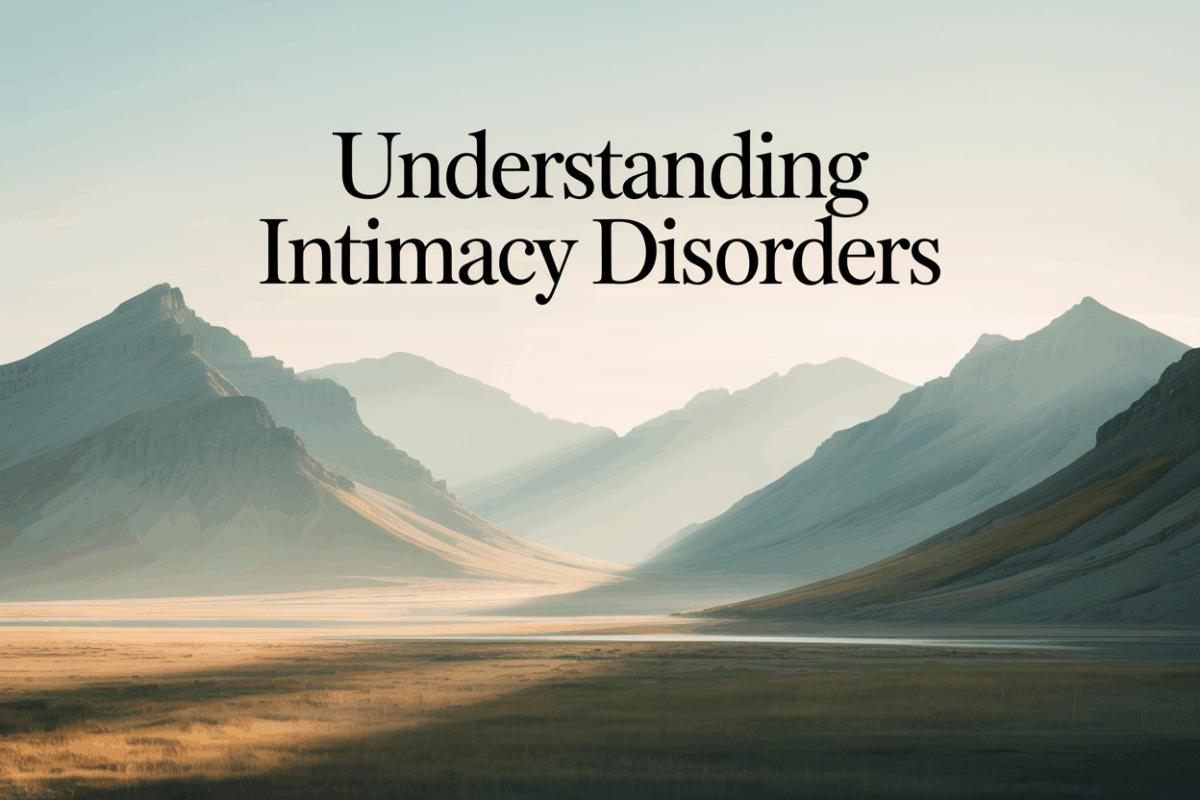Understanding Intimacy Disorders: What They Are, What They’re Not, and How We Treat Them at Valiant Living
What Is an Intimacy Disorder?
An intimacy disorder is not just about sex—it’s about connection. People with intimacy disorders often struggle to form and maintain safe, authentic emotional or physical closeness with others. They might crave connection but fear vulnerability, leading to patterns that push intimacy away.
At the core, intimacy disorders stem from unresolved trauma, attachment wounds, and shame. They can show up as compulsive sexual behavior, emotional withdrawal, avoidance, or serial relationships that never feel satisfying. These behaviors aren’t about desire—they’re about coping with pain.
At Valiant Living, we recognize that intimacy disorders are rarely standalone issues. They often coexist with addiction, trauma, anxiety, depression, or codependency, creating a web of behaviors that isolate rather than connect.
Common Signs of an Intimacy Disorder
-
Difficulty maintaining long-term relationships
-
Fear of commitment or abandonment
-
Using sex, fantasy, or relationships to regulate emotion
-
Chronic dissatisfaction in relationships
-
Emotional detachment or numbing
-
Secretive or compulsive sexual behavior
-
Persistent guilt, shame, or self-criticism around relationships
Myths About Intimacy Disorders
Myth #1: It’s Just About Sex
One of the biggest misconceptions is that intimacy disorders are purely sexual in nature. In reality, they’re about emotional connection and trust. Sexual behavior might be the symptom, but the underlying issue is the inability to connect safely with oneself and others.
Myth #2: It’s a Moral Failing
Intimacy disorders aren’t about weak willpower or bad choices—they’re a response to deep emotional pain. Many people developed these patterns as survival mechanisms in childhood or following trauma. Healing begins when we move from judgment to compassion.
Myth #3: It Can Be Fixed Quickly
There’s no quick fix for intimacy disorders. Healing requires time, safety, and structure. Clients need to build trust slowly, learn to tolerate vulnerability, and integrate emotional, physical, and spiritual aspects of recovery.
Myth #4: You Have to Lose Everything Before Getting Help
Many people seek help only after crisis—infidelity, discovery, or relationship breakdown—but it doesn’t have to get that far. Seeking treatment early can prevent long-term pain for both individuals and families.
How We Treat Intimacy Disorders at Valiant Living
At Valiant Living, we specialize in treating intimacy disorders through a multidisciplinary, trauma-informed approach. Our team integrates the work of Certified Sex Addiction Therapists (CSATs), trauma specialists, and licensed clinicians to address the entire person—not just the behavior.
Our Clinical Approach Includes:
-
Trauma and Attachment Work: Helping clients understand how early experiences shaped their relationship patterns.
-
Group Therapy: Providing safe environments where men can practice vulnerability, accountability, and connection.
-
Disclosure and Partner Support: Guiding couples through structured honesty and healing after betrayal.
-
Somatic and Experiential Therapy: Reconnecting the body and emotions to rebuild trust and presence.
-
Wellness and Nature-Based Recovery: Using fitness, mindfulness, and outdoor experiences to foster balance and stability.
We believe that intimacy can be learned, practiced, and restored. Many men arrive at Valiant Living feeling disconnected—from themselves, their partners, and their purpose. Through our 30–90 day residential and partial hospitalization programs, they learn to rebuild healthy attachment and step back into life with clarity and integrity.
Our Philosophy: Healing Is About Reconnection
We don’t just treat addiction or behavior—we treat disconnection.
When a man heals his relationship with himself, he gains the capacity to love others well. When families experience safety and honesty, healing becomes possible on every level.
Our mission is simple: to help put families back together.
If You’re a Therapist or CSAT Looking for Support
We regularly partner with the IITAP and CSAT community to provide a higher level of care for men who need more than outpatient support. Whether your client needs stabilization, disclosure preparation, or trauma integration, we work collaboratively to ensure continuity of care.
Get Help Today
If you or someone you love is struggling with an intimacy disorder, help is available.
Reach out to Michael Dinneen, LCSW, CSAT, directly at 720-935-5903 or visit valiantliving.com to learn more about our programs.


